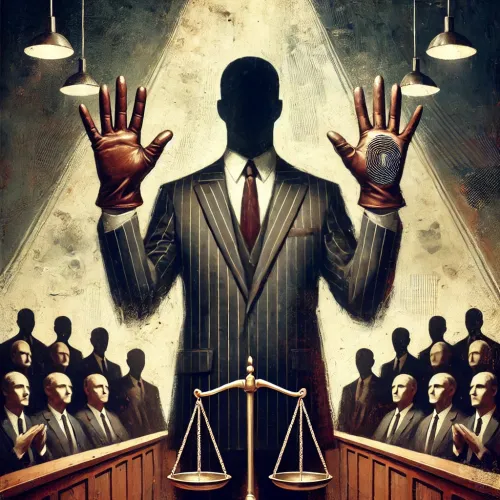The Vietnam War was one of the most polarizing conflicts in American history, sparking widespread protest and resistance across the nation. From the mid-1960s through the war’s conclusion in 1975, the military draft became a flashpoint for dissent. Many Americans viewed the draft as an unfair and immoral mechanism that disproportionately targeted the poor and minorities to fight in a war they increasingly opposed. Amid this turbulent period, acts of jury nullification played a significant role in resisting the draft and challenging the government’s prosecution of war resisters.
The draft required young men to register and report for military service, with refusal leading to criminal charges. High-profile figures like Dr. Benjamin Spock, a renowned pediatrician and author, became symbols of resistance. Spock, along with several others, was charged in 1968 with conspiracy to obstruct the draft by encouraging young men to resist. Although Spock was ultimately convicted (later overturned on appeal), his case highlighted the moral struggle faced by jurors tasked with enforcing laws many found objectionable.
More impactful were the numerous local trials of draft resisters across the country. Young men who burned draft cards, refused induction, or participated in anti-draft demonstrations were frequently prosecuted. Yet, in many cases, jurors empathized with the defendants. Jurors were often parents, veterans of previous wars, or simply citizens disillusioned with the escalating conflict. They understood the moral and ethical dilemmas faced by resisters and increasingly viewed the draft as an extension of a deeply unpopular war.
For instance, in several cases, individuals charged with draft card destruction—a clear violation of the Selective Service Act—received acquittals from juries. These verdicts defied the clear legal instructions given by judges and instead reflected the growing anti-war sentiment of the time. Jurors used nullification to send a powerful message: they would not support the prosecution of individuals resisting what they saw as an unjust war.
Jury nullification during the Vietnam War era was part of a broader pattern of resistance to the draft. This resistance included mass protests, sit-ins, and underground networks that helped draft evaders escape to Canada. The refusal of juries to convict added a layer of legitimacy to the anti-draft movement, demonstrating that even within the judicial system, Americans were deeply divided over the war.
Critics of jury nullification argue that it undermines the rule of law by allowing jurors to impose their own moral judgments in place of legal standards. In the context of the Vietnam War, however, nullification became a tool for expressing conscience. It was a response to laws that forced individuals to participate in a war many believed was unjust and unnecessary. By acquitting draft resisters, jurors aligned themselves with the broader moral and political opposition to the conflict.
The cumulative effect of jury nullification, combined with widespread protests and civil disobedience, contributed to significant policy changes. In 1973, amid mounting pressure, Congress ended the draft, transitioning the military to an all-volunteer force. The war itself concluded in 1975 with the withdrawal of U.S. forces and the fall of Saigon. While jury nullification was not the sole factor in these outcomes, it reflected the societal shift that made such changes inevitable.
The Vietnam War era demonstrates the power of jury nullification as a form of resistance during times of political and social upheaval. It underscores the unique role juries play in the American legal system, where they serve not only as fact-finders but also as a reflection of community values. When laws fail to align with the moral convictions of the public, jury nullification provides a mechanism for citizens to assert their values and influence policy.
The legacy of jury nullification during the Vietnam War extends beyond the anti-draft movement. It serves as a reminder of the tension between law and morality and the potential for juries to act as a check on government overreach. While controversial, jury nullification remains an essential feature of a legal system that values the conscience of the individual.
As we reflect on the Vietnam War era, the stories of draft resisters and the juries that acquitted them highlight the power of ordinary citizens to shape the course of history. In defying the law, these jurors upheld a higher principle: that justice requires more than blind adherence to authority—it demands the courage to challenge laws that fail to serve humanity’s greater good. Through their actions, they contributed to a broader movement that ultimately reshaped American society and its relationship to war.




